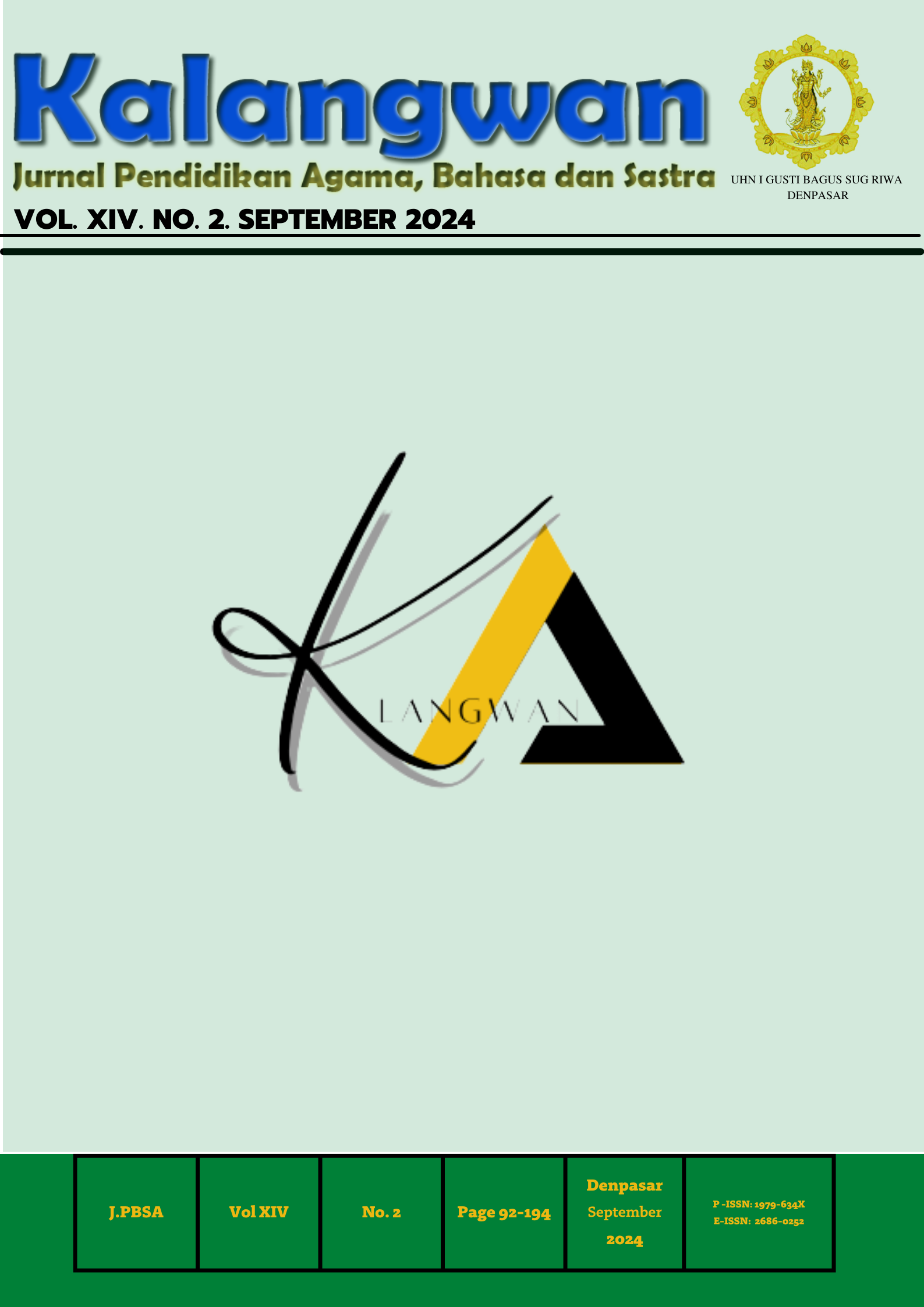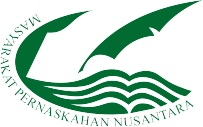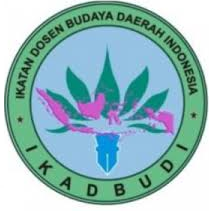IMPLEMENTASI METODE TUTOR SEBAYA (PEER TEACHING) DALAM AJAR-AJAR MEMBACA AKSARA BALI SISWA KELAS VII SMP NEGERI 3 ABIANSEMAL
DOI:
https://doi.org/10.25078/kalangwan.vi.4084Keywords:
Balinese Script, Peer Tutor Method, SMP Negeri 3 AbiansemalAbstract
The aim of education is to increase the nation's knowledge and form Indonesian people who are religious, knowledgeable, moral and have good skills. Balinese language education cannot be separated from global culture. Learning that includes Balinese culture such as script, spoken language and Balinese literature is very important to preserve Balinese culture. Balinese, as one of the regional languages in Indonesia, is often not used enough in everyday life, especially in urban areas. The Balinese script, which was adapted from the Javanese script, has an important role in Balinese culture and is used in various contexts, including writing regular Balinese, kawi language, and mantras. Learning Balinese includes four main skills: listening, speaking, reading and writing. One important skill is reading Balinese script. Based on observations, the peer tutoring method is effective in increasing students' interest and ability in reading Balinese script. This research was carried out at SMP Negeri 3 Abiansemal in class VII F and showed that students were able to read Balinese script well after using the peer tutoring method. These results show the importance of the peer tutoring method in learning to read Balinese script to preserve Balinese language, literature and script. Thus, implementing this method can increase students' knowledge and skills in learning Balinese script. Apart from that, the peer tutoring method can also increase the sense of togetherness and cooperation between students, thereby creating a more inclusive and supportive learning environment. The implementation of this method must be continuously monitored and evaluated to ensure its effectiveness in the long term.












